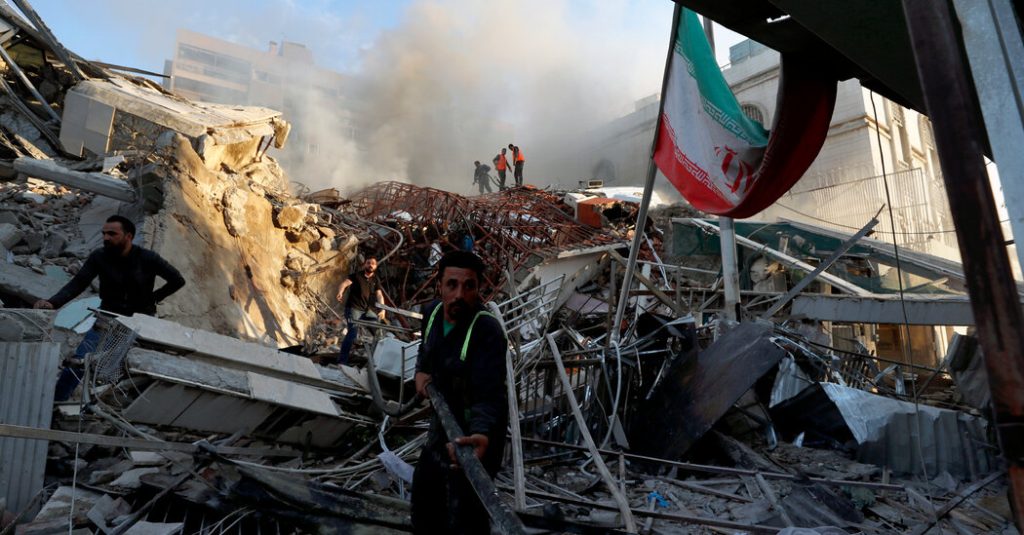Israel’s recent bombing of an Iranian Embassy building in Damascus has resulted in the deaths of senior Iranian military and intelligence officials, escalating tensions between the two countries that have long been engaged in an undeclared war. Iran has promised major retaliation, but both Israel and Iran are wary of sparking a full-scale war that could have dire consequences for both nations. The attack targeted key Iranian military figures who were heavily involved in arming and guiding proxy forces in various countries in the region, as part of Iran’s efforts to destabilize and threaten Israel.
For Israeli Prime Minister Benjamin Netanyahu, the successful elimination of these Iranian officials is seen as a political victory, particularly at a time when calls for his resignation have been growing amidst ongoing conflicts with Hamas and unrest in Gaza. Israel’s infiltration of Iranian intelligence highlights its efforts to weaken and deter Iran’s regional proxies, part of Iran’s Axis of Resistance against Israel. Netanyahu has long viewed Iran as Israel’s main enemy, and this strike may help him regain credibility as a strong leader in matters of national security.
While Iran has vowed revenge for the attack, the country is also mindful of the risks of escalating tensions further. U.S. officials do not believe that Iran was behind the Hamas attack that triggered Israel’s response, and Iran has expressed a desire to avoid a regional war. However, the strike on Iranian territory and the killing of senior commanders of the Quds Force have put Iran in a difficult position, as it faces pressure to respond but must carefully calculate its next steps to avoid further conflict.
The Israeli military’s goal in targeting Iranian proxies is to weaken them without inciting a full-scale war with Hezbollah, the Iran-backed group in southern Lebanon that has sporadically clashed with Israel in the past. This delicate balancing act is crucial for Israel as it navigates through ongoing conflicts and seeks to maintain its strategic advantage in the region. Prime Minister Netanyahu’s focus on Iran’s nuclear program and regional activities has been a central theme throughout his leadership, and the recent strike may help reinforce his image as a strong defender of Israel’s security interests.
As tensions simmer between Israel and Iran, the risk of miscalculation remains high, with both countries seeking to gain leverage in Gaza, Lebanon, and other regional flashpoints. Iran’s vows of retaliation and revenge must be carefully weighed against the potential consequences of sparking a wider conflict. The recent attack on Iranian officials in Damascus has highlighted the complex web of alliances and interests at play in the region, underscoring the challenges faced by both Israel and Iran as they navigate through a volatile and ever-changing geopolitical landscape.


